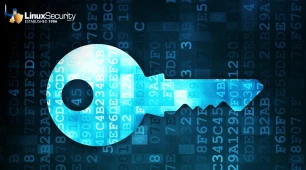
A resurgence of cyberattacks targeting Linux systems in Asian campaigns through the utilization of the Pupy Remote Access Trojan (RAT) has been observed. The malware's multifunctional nature is a notable characteristic, striking a chord with Linux admins, infosec professionals, internet security enthusiasts, and sysadmins who are likely familiar with the potential threat of versatile malware.
Let's examine the implications of these attacks for admins and security professionals and discuss strategies and tips for mitigating risk.
What Are the Security Implications of Pupy RAT?
 The intricate capabilities of Pupy RAT, including remote command execution, information theft, keylogging, and its ability to evade detection, make it a remarkable tool for cybercriminals seeking to infiltrate and compromise systems in the Asian region. It is a critical reminder for security practitioners of the importance of robust cybersecurity measures in this evolving landscape of cyber threats. As attackers refine their techniques and target less conventional operating systems, the need for vigilant cybersecurity practices and advanced protection mechanisms has never been more important.
The intricate capabilities of Pupy RAT, including remote command execution, information theft, keylogging, and its ability to evade detection, make it a remarkable tool for cybercriminals seeking to infiltrate and compromise systems in the Asian region. It is a critical reminder for security practitioners of the importance of robust cybersecurity measures in this evolving landscape of cyber threats. As attackers refine their techniques and target less conventional operating systems, the need for vigilant cybersecurity practices and advanced protection mechanisms has never been more important.
The implications of these targeted attacks are significant, prompting questions that resonate with the audience. How can security practitioners adapt their defense strategies to combat multifunctional malware like Pupy RAT, mainly when it targets less conventional operating systems such as Linux? What long-term consequences could the exploitation of known vulnerabilities by threat actors have on the cybersecurity landscape, particularly in regions increasingly becoming targets of such attacks?
How Can I Protect Against Threats Like Pupy RAT?
To protect against attacks like Pupy RAT, organizations and individuals must keep systems updated, employ advanced threat detection solutions, and educate users on the risks of phishing and social engineering tactics. This guidance underscores the need for proactive cybersecurity practices, robust protection mechanisms, and ongoing education to effectively counter the multifaceted risks posed by such malware. We also emphasize the need to remain informed about the evolving threat landscape and the significance of maintaining a robust cybersecurity posture.
Our Final Thoughts on Pupy RAT Linux Malware
The resurgence of Pupy RAT in targeting Linux systems signifies the evolving nature of cyber threats, necessitating the prioritization of advanced protection mechanisms and proactive cybersecurity practices. Security practitioners must remain vigilant, adapt their defenses, and mitigate the impact of targeted attacks by refining their cybersecurity strategies.

















